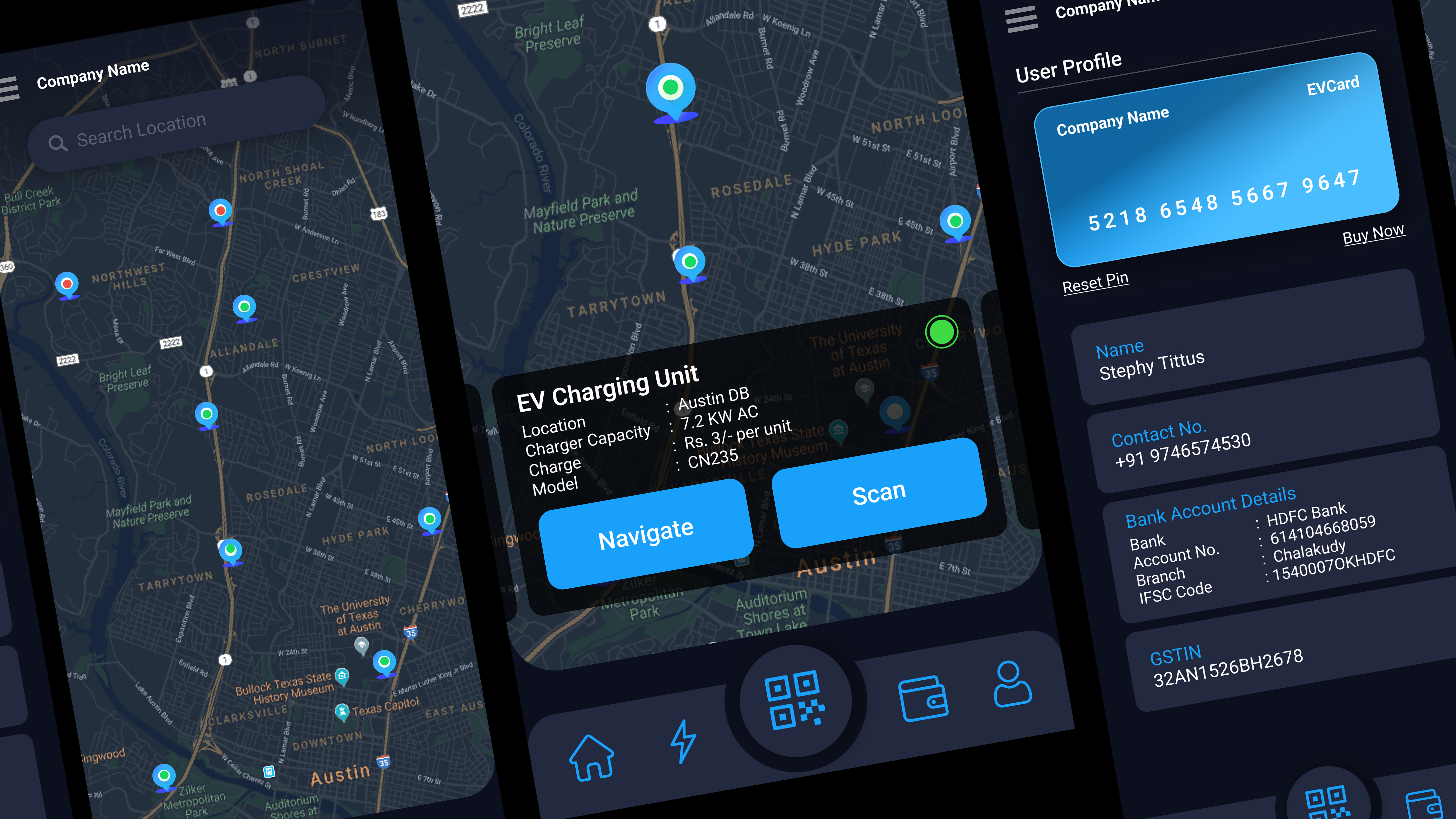Project Overview
Our recent project involved developing an innovative Electric Vehicle (EV) Charging App aimed at simplifying the charging process for EV owners. This app enables users to locate and use registered charging stations, manage their charging sessions, and even add their own stations to the network. Built on React Native, the app leverages the Open Charge Point Protocol (OCPP) for seamless communication between the app and EV charging devices.
Objectives
- User-Friendly Interface: Develop an intuitive interface allowing users to easily find and use EV charging stations.
- Real-Time Updates: Provide real-time status updates of charging stations.
- Secure Transactions: Ensure secure handling of user profiles and financial transactions.
- Scalability: Allow users to add their own charging stations to the network.
Key Features
User Profile and Authentication:
- User Registration and Login: Users can create profiles, log in, and manage their accounts.
- Profile Management: View and edit personal information.
Interactive Map:
- Google Maps Integration: Home page features a full view of Google Maps showing available charging stations.
- Station Markers: Markers display the status of each EV charging unit, helping users locate the nearest available station.
EV Charging Options:
- QR Code Verification: Users connect to the EV unit via QR scan.
- Charging Modes: Options include full charge, charge based on amount, or time-limited charging.
Wallet System:
- Add Funds: Users can add money to their wallet within the app.
- Automated Deductions: Charging fees are automatically deducted from the user’s wallet.
Charging Status and Control:
- Real-Time Updates: Detailed updates on the charging process.
- Remote Control: Users can stop the charging process remotely.
Device Management:
- Device List: View and manage available charging devices.
- Add Devices: Users can add new devices to the network.
Technical Specifications
- Front-end: React Native for cross-platform mobile app development.
- Back-end: Node.js and Python for handling server-side operations and communication with charging devices.
- Protocol: OCPP (Open Charge Point Protocol) ensures standard communication between the app and charging stations.
- Map API: Google Maps API for real-time location tracking and station status updates.
- Security: Secure authentication and wallet management ensure user data and financial information are protected.
Development Process
Requirement Analysis:
- Detailed discussions with stakeholders to understand the requirements and expectations.
Design Phase:
- UI/UX Design: Focused on creating a user-friendly and intuitive interface.
- System Architecture: Defined the architecture ensuring scalability and robustness.
Implementation Phase:
- Front-end Development: React Native was used for developing the cross-platform mobile application.
- Back-end Development: Node.js and Python handled server-side logic and communication with the EV devices using OCPP.
Integration:
- Google Maps Integration: Ensured real-time updates and interactive map features.
- OCPP Implementation: Seamless communication between the app and charging stations.
Testing and QA:
- Functional Testing: Ensured all features work as intended.
- Security Testing: Focused on data security, especially for user authentication and wallet transactions.
Deployment: Rolled out the app on major platforms, ensuring smooth installation and operation.
Challenges and Solutions
- Real-Time Communication: Ensured real-time updates and status through efficient use of OCPP and optimized server responses.
- Scalability: Designed the system architecture to handle increasing numbers of users and charging stations.
- Security: Implemented robust security measures for user authentication and wallet transactions to protect sensitive data.
Impact and Future Plans
The EV Charging App has streamlined the process of locating and using charging stations, providing a convenient and efficient solution for EV owners. Moving forward, we plan to introduce more features, such as:
- Enhanced Analytics: Provide users with detailed reports on their charging history and patterns.
- Community Features: Allow users to share their experiences and rate charging stations.
- Expanded Network: Encourage more users to add their charging stations, expanding the network.
This project highlights our commitment to developing innovative solutions that leverage the latest technologies to enhance user experiences and address real-world challenges.


Leave a Reply